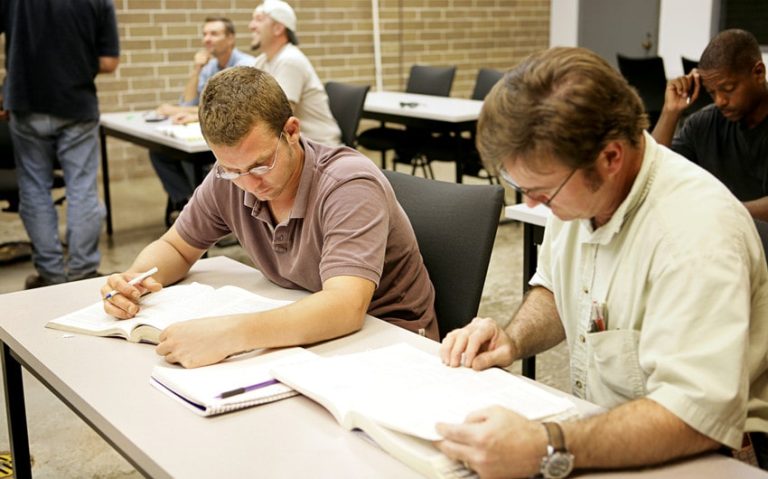Pursuing a college degree is a significant step toward building a successful career, but many students find themselves balancing work responsibilities alongside their academic commitments. While working during college can offer numerous benefits, such as gaining valuable experience and financial independence, it also presents unique challenges.
Striking the right balance between work and study is crucial to not only excelling academically but also securing optimal career outcomes. To achieve this, students need to develop effective strategies that help them navigate both worlds without sacrificing one for the other.
The Challenges of Juggling Work and Study
Balancing work and study often feels like a juggling act, with students constantly switching between academic deadlines and work shifts. The demands of college coursework can be intense, with assignments, exams, and group projects requiring significant time and mental energy.
At the same time, holding a job—whether part-time or full-time—comes with its own set of responsibilities, such as maintaining work schedules, meeting performance expectations, and managing financial commitments.
One major challenge students face is time management. With limited hours in the day, it’s easy for work or school responsibilities to overwhelm personal life, resulting in burnout. Additionally, working students may struggle to participate in extracurricular activities or find time for socializing, which are important aspects of the college experience. Physical and mental exhaustion can lead to decreased academic performance, potentially delaying graduation or affecting future career opportunities.
Time Management: The Key to Success
One of the most effective ways to handle the demands of work and study is through proper time management. Having a structured routine ensures that students can allocate enough time for their classes, assignments, and work commitments without feeling overwhelmed.
A useful strategy is creating a detailed weekly schedule that incorporates not only classes and work shifts but also study sessions, meal breaks, and downtime. Sticking to a consistent routine helps students maintain balance, reduce procrastination, and stay on top of both academic and work-related tasks.
Setting priorities is another essential element of time management. Students should identify their most critical responsibilities and tackle them first. For instance, if a midterm exam is approaching, preparing for it should take precedence over picking up an extra shift at work. Similarly, during less busy periods at school, students can increase their work hours to save money or gain experience.
Learning to say no is also important. While extra shifts or social invitations can be tempting, overcommitting leads to stress and lower performance. Recognizing personal limits is key to maintaining a sustainable work-study balance.
How to Prioritize Academic and Professional Commitments
When trying to balance work and study, prioritization is crucial. Understanding which tasks require immediate attention and which can be deferred makes a significant difference in managing both spheres effectively.
In academic settings, this means keeping track of upcoming deadlines for assignments, projects, and exams. Students can make use of tools like planners, calendars, or apps to stay organized and avoid last-minute cramming. Staying on top of reading assignments and lecture notes allows students to manage their coursework without falling behind.
On the professional side, it’s important to communicate with employers about academic commitments. Many employers understand the unique challenges faced by working students and may be willing to offer flexible hours during exam periods or deadlines. It’s also vital to choose work opportunities that align with long-term career goals.
Effective Study Strategies for Working Students
Working students need to develop efficient study habits to manage their academic responsibilities alongside their job. One strategy is to organize study materials in a way that makes studying both effective and time-efficient. Creating comprehensive study notes from lecture notes and textbooks can help students review key concepts quickly. These study notes should summarize main ideas and include any necessary details for exam preparation. Using a variety of study aids, such as study guides or flashcards, can also enhance retention.
Having access to reliable study help, whether through tutors, online resources, or group study sessions, is also important for working students. Leveraging these resources can lighten the academic load and ensure that students are adequately prepared, especially during busy periods. Using effective exam prep strategies, like study notes to help secure grades and prevents last-minute cramming.
Finally, it’s crucial for students to create a dedicated space for studying, even if they’re balancing work and home life. A distraction-free environment allows students to focus on their study materials, making their study sessions more productive. Keeping a regular study schedule will also reinforce good habits and ensure that study notes are reviewed consistently.
Leveraging Work Experience for Career Growth
Working during college not only helps financially but can also be a stepping stone for future career growth. By choosing jobs or internships that align with their field of study, students gain practical experience and build skills that enhance their resume. Even part-time jobs unrelated to their major can teach transferable skills like communication, time management, and problem-solving, which are valued by employers across industries.
Students should also network with colleagues and supervisors in their workplace. These connections can lead to future job opportunities, mentorship, and professional recommendations. Employers often value employees who demonstrate responsibility and initiative, so balancing work and school successfully can make a strong impression when applying for jobs after graduation.







